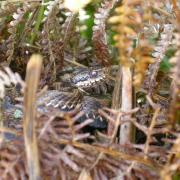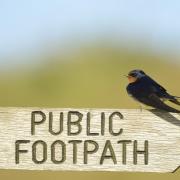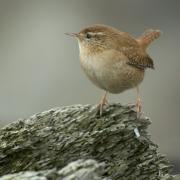Q. I've seen bees coming out of tiny holes in my lawn, what are they doing?
Q. I’ve seen bees coming out of tiny holes in my lawn, what are they doing?
These are female solitary bees laying eggs. Solitary bees are different from bumblebees and honey bees because they do not form colonies. Instead a single female finds or creates a nesting hole in which she lays an egg. She then blocks up the tunnel leaving a mixture of nectar and pollen in the cell and lays another egg. She will repeat this process until the tunnel is full.
Females spend their entire adult life, usually only a few weeks, making and provisioning their nests. After they die the eggs hatch and the larvae feed on the food left for them. They then over-winter in the tunnel before metamorphosing into an adult bee in the following spring.
There are around 250 species of solitary bee found in the UK, some very rare. They nest in a variety of places including walls, wood and in the ground. Often their common name is a clue to where they nest. Carpenter bees have powerful jaws that they use to dig tunnels in wood. Masonry bees tend to nest in existing holes often in walls or between bricks and mining bees mostly nest in the ground. Leafcutter bees can be easily recognised by their behaviour. They cut out sections of leaves with their jaws and use them to line their nests.
Sometimes people want to get rid of solitary bees from their garden because they think they are honey bees. It is an easy mistake to make because although they make individual egg cells, some solitary bees nest very close together even using a communal entrance hole. Also lots of female bees flying around the same area looking for mud to block up their nests can resemble a swarm.
It is important that we do what we can to encourage solitary bees by planting spring flowers and providing suitable nesting spots. Please don’t be scared by them. Remember, solitary bees are not at all aggressive and only have a very weak sting that can barely penetrate human skin. They are extremely beneficial as they pollinate many of our crops. So why not leave a bare patch of earth in a sunny spot of your garden or create a bee hotel and enjoy watching these fascinating insects.


























